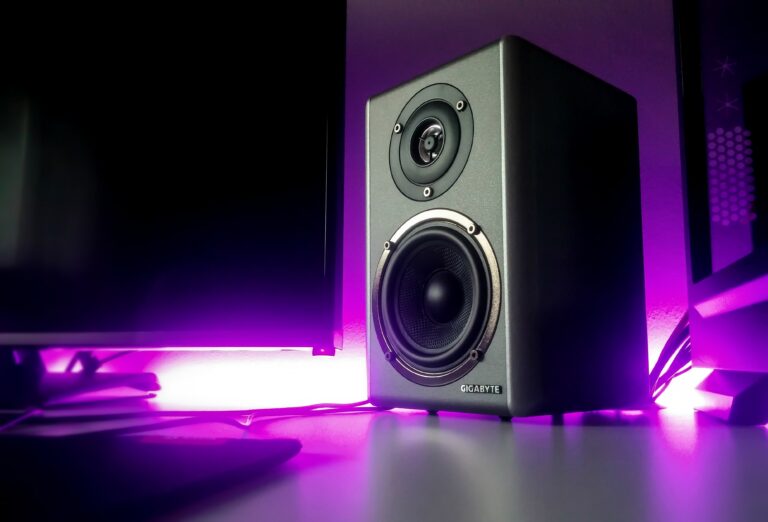This may be a discovery for most readers, but yes. LED lights cause radio interference, another saying that LED lights make speakers buzz.
Why are my LED Strip Lights buzzing?
The point now is why the LED strip lights you have been buzzing? Well, there’s a very strong chance that the LED strip is not buzzing at all and the reason it is blinking is the power inlet. Yes, fluctuations in the provided can cause the LED strips to go on a blinking campaign.
But do LED lights cause radio interference strong enough to buzz other appliances? Yes, they can. And the buzzing may be so strong enough to interfere with other electronic appliances such as speakers, WIFI routers, etc.
LED Lights making Speakers Buzz: Breaking down the Myth
You now know that this is not a myth at all. LED lights can indeed cause radio interference. This bizarre property of LED strip lights is the unsheathed wires or the ground problem. In any case, the buzz will be strong enough to disrupt surrounding electronics.
Also, the radio interference won’t be restricted to the speakers’ buzzing. In certain conditions, the buzzing can be strong enough to even disrupt appliances other than speakers. This can be a real issue as electronic appliances are household models’ core.
Here are some scenarios in which the LED strips can be a real issue,
- LED lights causing radio interference
Everything around us today is working on radio frequencies. Surprise to know that? From WIFI signals to the very core electronic appliances like the radio. These radio frequencies are known for their long transmission ranges and the ability to keep data intact.
But having a mix-up of radio frequencies at a place can cause some high-level disruptions. This is where LED strips and their ability to cause radio interferences come in.
Once jumbles up, the LED strips can cause the whole radio frequency around the area to shuffle. As a result, electronics that depend on these radio frequencies to work start buzzing. These appliances include WIFI routers and speakers on top.
- Creating a loop in the Circuitry
One of the core rookie mistakes in context with LED strip installation. Suppose you have practically zero knowledge regarding electronics and connections. It is better to hire a professional to install LED strip lights. Installing something like this yourself can cause many long-term problems for you.
For example, you can create a loop circuit through LED strip lights if you won’t care enough. A loop, more commonly a closed loop circuit, involves all the electronic components connected to the loop in one or the other.
In other words, damage to one end of the LED strip lights in a loop can alter the whole working path of electronics placed in the room.
- Short-circuiting the internal connections
Without a doubt, the worst-case scenario to go through. Just think about it, short-circuiting an LED strip light in a closed loop can be super dangerous if you don’t have a proper counter mechanism.
Although LEDs on a strip are connected in series connection, this just won’t secure the connected electronic devices according to the order of the circuit. That’s why it is better to check for any kind of short circuit before turning the LEDs on for the first time.
Why do Speakers Buzz in the first place?
Well, speakers are one of those electronic appliances that depend upon radio frequencies for their work. Any disturbance in the normal radio frequencies can disturb the speaker, causing them to buzz.
This buzzing can be very annoying if you are one of those who are fond of using speakers throughout the day.
Also, the buzzing can be an early indicator of a far greater issue. Any kind of short-circuit within the original circuitry can also cause buzzing in the speakers. If something like this happens quite often, look for professional help.
Can Buzzing damage the Speakers?
Yes, buzzing can cause damage to the speakers. Well, most the people believe that buzzing is simple interference with the radio frequencies surrounding the room. But in reality, this buzzing can cause prominent damage to the whole speaker circuitry if not taken care of properly and in time.
Speakers work by the vibrations made on the speaker diagram taking input from radio frequencies. If the buzzing continues without any possible reason, the vibrating diaphragm may get damaged.
This will automatically impact the performance of the speakers. Hence it is better to do something about the buzzing before it’s too late.
Final Note
When we talk about electronics, it is better to nip any abnormality in the bud. From short circuits to looping the whole room circuitry, the speaker’s buzzing caused by LED strips can result in any unfortunate event.
